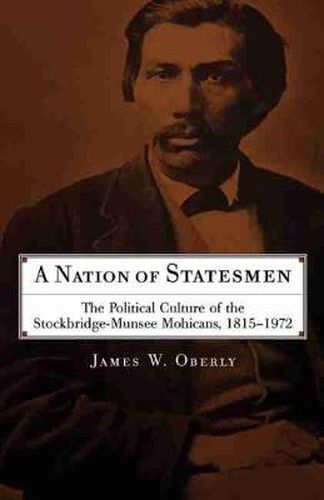Readings Newsletter
Become a Readings Member to make your shopping experience even easier.
Sign in or sign up for free!
You’re not far away from qualifying for FREE standard shipping within Australia
You’ve qualified for FREE standard shipping within Australia
The cart is loading…






A history of the Mohican people from the War of 1812 to the Nixon administrationContrary to the impression left by James Fenimore Cooper’s famous novel Last of the Mohicans, the Mohican people, also known as the Stockbridge-Munsee Indians, did not disappear from history. Rather, despite obstacles, they have retained their tribal identity to this day. In this first history of the modern-day Mohicans, James W. Oberly narrates their story from the time of their relocation to Wisconsin through the post-World War II era.
Since the War of 1812 Mohican history has been marked by astute if sometimes bitter engagement with the American political system, resulting in five treaties and ten acts of Congress, passed between 1843 and 1972. As Oberly traces these political events, he also assesses such issues as tribal membership, intratribal political parties, and sovereignty.
$9.00 standard shipping within Australia
FREE standard shipping within Australia for orders over $100.00
Express & International shipping calculated at checkout
A history of the Mohican people from the War of 1812 to the Nixon administrationContrary to the impression left by James Fenimore Cooper’s famous novel Last of the Mohicans, the Mohican people, also known as the Stockbridge-Munsee Indians, did not disappear from history. Rather, despite obstacles, they have retained their tribal identity to this day. In this first history of the modern-day Mohicans, James W. Oberly narrates their story from the time of their relocation to Wisconsin through the post-World War II era.
Since the War of 1812 Mohican history has been marked by astute if sometimes bitter engagement with the American political system, resulting in five treaties and ten acts of Congress, passed between 1843 and 1972. As Oberly traces these political events, he also assesses such issues as tribal membership, intratribal political parties, and sovereignty.